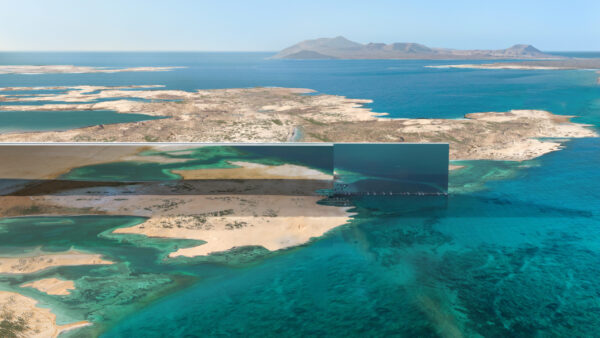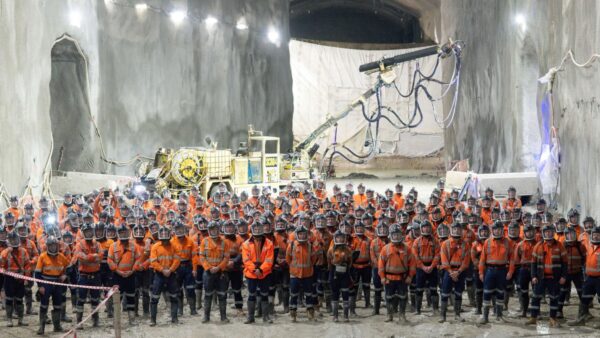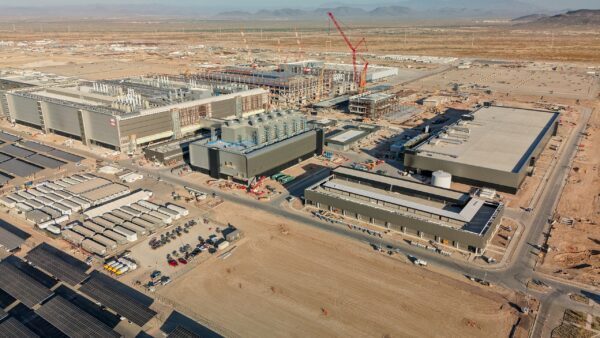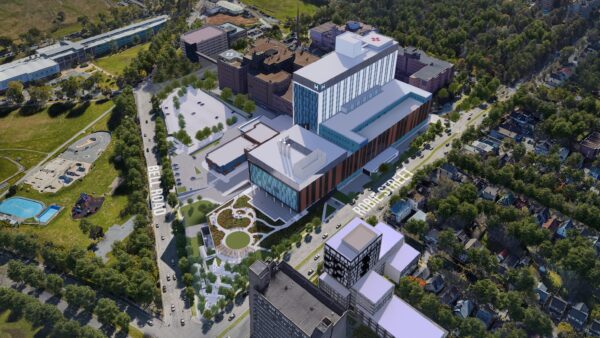Worries over water security for millions of people prompted the Arab League yesterday to say it is following “with extreme concern” talks between Egypt, Sudan and Ethiopia over the latter’s Grand Ethiopian Renaissance Dam (GERD), which it is building on the Blue Nile.
Ethiopia was not “cooperating and coordinating enough”, said Ahmed Abul-Gheit, secretary general of the league, a regional association of 22 countries in Africa and the Middle East.
His comments came after negotiations between the three countries broke down earlier this month over how to conduct technical studies on the dam’s impact on Egypt and other countries downstream.
Abul-Gheit told the Fourth Arabic Forum for Water in Cairo that water security for Egypt, the most populous Arab country, was a matter of Arab national security.
“We do not feel that Ethiopia was cooperating and coordinating enough. The Ethiopian plans to operate the dam and use its water in irrigation are ambiguous and concerning,” he said, reports Egyptian news site Ahramonline.
Abul-Gheit called on Ethiopia to show more openness and cooperation given that “there are currently 400 million people living on the banks of the Nile who will reach one billion by 2050”.
He said Egypt receives 85% of its water from the Ethiopian highlands through the Blue Nile.
As its name suggests, GERD, set to be Africa’s biggest dam, is a project of supreme national importance to Ethiopia. Now more than half built by Italian contractor Salini Impregilo, the hydroelectric plant will have an installed capacity of 6,000 MW – more than double Ethiopia’s current generating capacity – and is central to Ethiopia’s plan to be a net power exporter to the electricity-starved continent.
Construction began in early 2011 as Egypt was convulsed by its January revolution. Since then, fearing for its water security, Egypt has strongly opposed the dam, with concerns over the possibility of the conflict escalating to violence emerging in 2013.
Since then, without relinquishing its concerns, Egypt has acquiesced in principle to Ethiopia’s right to build GERD.
In March 2015 Egypt’s President Abdel-Fattah el-Sisi and his counterparts from Ethiopia and Sudan signed a cooperation deal on the principles of sharing the Nile River water and the construction of the GERD. Then in September 2016 Egypt, Sudan and Ethiopia agreed that French consultants BRL and Artelia would carry out studies on GERD’s impact on the flow of the Nile.
However, negotiations held 11-12 November in Cairo between the three parties broke down over the studies, with Egypt’s water minister accusing Sudan and Ethiopia of trying to direct them in a way that would “render them useless”, reported Middle East news site Al-Monitor.
Meanwhile, Ahramonline reported that Egypt’s president and Ethiopian Prime Minister Hailemariam Desalegn are scheduled to meet in Cairo next month to discuss the deadlock.
Image: A community by the Nile in Egypt. The Arab league says the number of people living along the Nile in different countries will reach 1 billion by 2050 (Krivinis/Dreamstime)
Further Reading:
Comments
Comments are closed.











If the water resource is being managed properly by the river basin countries nothing to worry about it.
There could be well organized a common mutual institute equipped with knowledge and skill full individuals or intellectuals who can address the concerns of all parties for the benefits of Blue Nile brothers.
The basis of these negotiations is fragmented by the fact that Egypt, years ago, built a singular dam backing a huge reservoir that wastefully evaporates valuable freshwater on a grand geographical scale. Instead of trying to coerce Ethiopia into a status of culpability for Egypt’s alleged future problems, why does not Egypt take more drastic efforts itself to curtail the huge annual evaporation by, say, covering the lake with evaporation retardants such as white-colored floating balls? Apparently Egypt really wants to restrict Ethiopia’s future cache and empowerment in Africa’s geopolitics.
The Arab countries who have oil as their natural wealth, sell it to the world by a liter, and when it come to other countries natural wealth, in this case, which is a blue Nile fresh water, they want it free and threading Ethiopia. How fair is this?
Yes but not at the expense of another Country. You don’t have to take it all, that is GREED
From the inception of the construction of the dam, Ethiopia chose to proceed via diplomacy and un interrupted respect for raparian states. All tributary countries hail the right and duties of Ethiopian government to lift people out of poverty. One way by building which will be a vital source of energy and possibly foreign currency via export. Egypt still sleeps on the mattress of history banging about colonial treaty. You need to wake up and smell the coffee, learn to respect. Sit at the round table and talk. Please don’t try to lecture us our right. Our hope is growth and prosperity. We didn’t start the project to starve Egypt. It is a win win. If you trace back the scenario we are not advocating zero sum game theory!
If Egyptians are talking about equitable share of resources, can you tell me Ethiopian share from the nile water.
Arabs have been an enemy to ethiopia throughout history and the arab league advocacy for Egyptians at this time is not surprising. The nile is ethiopian resource. Ethoopia is Building the GERD in ethiopia not in egypt. And has a full right to use its resource.
Whether a toothless organization controlled by Egypt and Saudi is concerned or not, Ethiopia doesn’t give a damn to this nonsense. Egypt is going to do everything to spread lies but Ethiopia is going to continue to tell the world that it doesn’t give a hoot to a treaty which isn’t part of. If the Arab world security is more important than Ethiopia’s security and survival, let the Arabs read a bit about Ethiopian history. Ethiopia will continue day and night to finish the dam and Egypt will continue crying and whining about the 1959 treaty.
why is all this fuss now? Where have they been before the project began . No U turn in this aspect.
First off, Abu al-Ghayt, Abu El Gheyt can go straight to hell. The Arab league lead by Egyptian mold is siding with Egypt without conducting their own investigation or looking into the other side’s narrative. How fair is that? Perhaps this is an appropriate time for the AU to look into this Arab conspiracy and respond suitably. The African Union must stand-up and be weighed. They must defend a founding member state under egregious Arab attacks.
We have Millions living below poverty line and no access for electricity for 60% of our society. we have full right to develop any resource in out country to end poverty and to bring Great Ethiopian back into the stage. GRED is 1 on the development target on this river.
It s time to think for Ethiopia!! Egypt, please don’t expect a free lunch for life, time to pay back!!.and for other Arab countrys who were conserned, please donate your oil for Egypt otherwise GTFOOI!!!!!!
From the various research publications and negotiations on the Nile Water use, Egypt’s rigid stance (againest the upper Riperian Countries water interest) revolves around the three points:
1) Fixed quota of 55 bln cubic meter a year (irrespective of drought or flood hydrologic year cycle),
2) Prior notification before any developmental projects any where,
(read this excluding those in Egypt),
3) Full consensus by all before any developmental activity, (read this again, in exclusion of Egypt).
Egypt knows very well, the GERD dam, once filled, the system will deliver more Nile water than it do now–even in the less rainy and drought prone years.
I have said it million times. Egypt’s concern it is not about the water; it rather the 4 billion tones fertile soil that has been and still being washed away every year to nourish that desert land of theirs.
Once the dam completed, we (Ethiopians) will be able to maintain that from occurring and that is, of course, a headache so, they keep coming up with loads of utter nonsense reasons and that’s why the negotiation has not taken any effect.
Ethiopia is always ready for negoitations with all the Nile basin countries including Egypt; The problem is Egypt always wants to be the only beneficiary of Nile waters at the poverty expense of other countries. The other Nile basin countries including Ethiopia have the right for equitable use of Nile waters!! Weather the Arab league likes it or not!!!
what the secretary general of the league said is so funny, it’s obvious that he blindly support his country so we will not take his comment seriously, we are here and the dam also in work in progress.
Egyptians did not negotiate with Ethiopia honestly from beginning. Instead, they tried to sabotage GERD from inception. They campaigned around the world to deny us funding sources. Ethiopians are humble people who are willing negotiable if approached in good faith. For those who want to be a snake, we do not retreat. Italy is a good witness.
With regard to Arab League, it should be concerned what is happening in its backyard instead of worrying about GERD. Arab League is nothing but an impetent organization. The Saudis are murdering Yemenis in thousands while Libya is burning. So is Seria. I would just tell the Arabs to shut the f***k up and leaves us alone.
Plenty of furious comments from the Ethiopian fellows. Equity, good faith and right to exist are fundamental principles that must be in the back of our minds – Egyptians, Ethiopians and Sudanese – when trying to settle this subtle issue.
Each country has the right to do what it sees best for its interest and there are several options to settle this either amicably or under international law.
A dispute between countries is not the end of the world and does not shake the fact that one Nile, one people. Please do not let politics get into your heads and trigger frustration unnecessarily.
A question to those who claim an alleged conspiracy against Ethiopia; would poverty, epidemics, inefficient education and the likes of those problems, that several comments invoke, disappear because of the dam?
The funniest part was the agreement by which it bases its claim.
There was these agreement signed about water coming out of Ethiopia with out Ethiopia being part of.
Those colonial days are over . Ethiopia knows how to keep what is its owns. Egypt succeeded in making Eritrea independent. Its next target is the Nile. That will be over the dead body of 100 million Ethiopians.
What Egypt needs to learn from all this is, even under a hugely unpopular government with questionable patriotism, Ethiopians from all walks of life, from the different spectrums of political outlook and ethnicity are rallying behind the GERD because its importance exceeds our differences. Egypt, for the last 140 years have been messing with our internal politics and went to war against us few times. The result, regardless of the military assistance they have been getting from Western powers including American mercenaries, they have left with their tails tucked under after suffering immeasurable embarrassment. During all those times, Ethiopia wasn’t the one picking the fight. All we need now is to use our God given rights to use our own resources. To defend these rights, we are battle hardened, 100 million strong Ethiopians ready for whatever. Remember this very carefully.
I personally am highly critical of the Ethiopian government but I will stand by it for this cause.
Rapid industrialization, population roth, and increasing agricultural use have contributed to worldwide water shortages so WATER will be The Ultimate Commodity very soon. As any Commodity there will be/is a price attached to it. The FREE ride for Egypt is over and anyone who has water will become the next Saudi Arabia or UAE (oil$$$). It’s time for Egypt to budget and pay for it or start to invest in converting sea water for its needs.